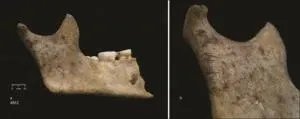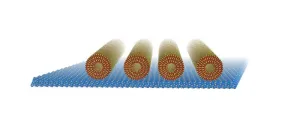(Press-News.org) It’s that time of the year when most of us get the chance to sit back and enjoy some well-deserved down time. But whether you reach for the TV controller, or a favourite book, your choice could have implications for your long-term brain health, say researchers at the University of South Australia.
Assessing the 24-hour activity patterns of 397 older adults (aged 60+), researchers found that the context or type of activity that you engage in, matters when it comes to brain health. And specifically, that some sedentary (or sitting) behaviours are better for cognitive function than others.
When looking at different sedentary behaviours, they found that social or mentally stimulating activities such as reading, listening to music, praying, crafting, playing a musical instrument, or chatting with others are beneficial for memory and thinking abilities. Yet watching TV or playing video games are detrimental.
Researchers believe that there is likely a hierarchy of how sedentary behaviours relate to cognitive function, in that some have positive effects while others have negative effects.
It’s a valuable insight that could help reduce risks of cognitive impairment, particularly when at least 45% of dementia cases could be prevented through modifiable lifestyle factors.
In Australia, about 411,100 people (or one in every 1000 people) are living with dementia. Nearly two-thirds are women. Globally, the World Health Organization estimates that more than 55 million people have dementia with nearly 10 million new cases each year.
UniSA researcher Dr Maddison Mellow says that not all sedentary behaviours are equal when it comes to memory and thinking ability.
“In this research, we found that the context of an activity alters how it relates to cognitive function, with different activities providing varying levels of cognitive stimulation and social engagement,” Dr Mellow says.
“We already know that physical activity is a strong protector against dementia risk, and this should certainly be prioritised if you are trying to improve your brain health. But until now, we hadn’t directly explored whether we can benefit our brain health by swapping one sedentary behaviour for another.
“We found that sedentary behaviours which promote mental stimulation or social engagement – such as reading or talking with friends – are beneficial for cognitive function, whereas others like watching TV or gaming have a negative effect. So, the type of activity is important.
“And, while the ‘move more, sit less’ message certainly holds true for cardiometabolic and brain health, our research shows that a more nuanced approach is needed when it comes to thinking about the link between sedentary behaviours and cognitive function.”
Now, as the Christmas holidays roll around, what advice do researchers have for those who really want to indulge in a myriad of Christmas movies or a marathon of Modern Family?
“To achieve the best brain health and physical health benefits, you should prioritise movement that’s enjoyable and gets the heart rate up, as this has benefits for all aspects of health,” Dr Mellow says.
“But even small five-minute time swaps can have benefits. So, if you’re dead set on having a Christmas movie marathon, try to break up that time with some physical activity or a more cognitively engaged seated activity, like reading, at some point. That way you can slowly build up healthier habits.”
This research was conducted by a team of UniSA researchers including: Dr Maddison Mellow, Prof Dot Dumuid, Dr Alexandra Wade, Prof Tim Olds, Dr Ty Stanford, Prof Hannah Keage, and Assoc Prof Ashleigh Smith; with researchers from the University of Leicester, and the University of Newcastle.
…………………………………………………………………………………………………………………………
Contacts for interview: Dr Maddison Mellow E: Maddison.Mellow@unisa.edu.au
Media contact: Annabel Mansfield M: +61 79 182 489 E: Annabel.Mansfield@unisa.edu.au
END
Ditch TV and read a book: UniSA research delivers best moves to reduce dementia risk
2024-12-15
ELSE PRESS RELEASES FROM THIS DATE:
Scientists learn how to make nanotubes that point in one direction
2024-12-14
Tokyo, Japan – Researchers from Tokyo Metropolitan University have made tungsten disulfide nanotubes which point in the same direction when formed, for the first time. They used a sapphire surface under carefully controlled conditions to form arrayed tungsten disulfide nanotubes, each consisting of rolled nanosheets, using chemical vapor deposition. The team’s technique resolves the long-standing issue of jumbled orientations in collected amounts of nanotubes, promising real world device applications for the exotic anisotropy of single nanotubes.
Nanotubes consist of sheets of atoms rolled into a nanoscale tube, turning a two-dimensional ...
Porous silicon oxide electrodes: A breakthrough towards sustainable energy storage
2024-12-14
Batteries have become an integral component of modern technology. Lithium-ion batteries (LIBs) can be found virtually everywhere, from handheld electronic devices and electric vehicles to the large power banks used in renewable energy generation systems. However, current LIB designs suffer from some crippling drawbacks, including low durability and the use of toxic liquid electrolytes.
To address these limitations, scientists have been studying all-solid-state batteries for over a decade. Although silicon-based all-solid-state batteries should be theoretically more durable than conventional LIBs, ...
$791,000 grant to support future nematode-resistant soybean varieties
2024-12-13
By Jenifer Fouch
University of Arkansas System Division of Agriculture
Arkansas Agricultural Experiment Station
FAYETTEVILLE, Ark. — Causing an estimated $160 billion in damages globally each year, one of agriculture’s biggest enemies is too small to see without a microscope.
Plant-parasitic nematodes feed on agricultural crops at their roots, reducing yields and profits for producers. In the U.S., soybean producers lose about 11 percent of their crops to soybean diseases, including the southern root-knot nematode, Meloidogyne incognita, or SRKN as it’s commonly known. The nematode forms abnormal growths — or knots — in soybean ...
Key regulator that induces cancer-killing capacity in T cells under hypoxia is identified
2024-12-13
BIRMINGHAM, Ala. – Immune checkpoint blockades, or ICBs, have revolutionized treatment for various advanced cancers. However, their effectiveness has plateaued due to therapeutic resistance that renders tumor-infiltrating lymphocytes, or TILs, ineffective. Thus, finding ways to disarm that resistance and rejuvenate anti-cancer TILs — so they can kill tumor cells — is an important goal for cancer clinicians. Yet any potential intervention has to take place under unusual conditions — the cancer microenvironment nearly devoid of oxygen due to fast ...
USC selected to receive $3.4 million award from ARPA-H’s Sprint for Women’s Health
2024-12-13
A team of researchers at The Keck School of Medicine of USC have received a $3.4 million federal grant to advance research on an innovative approach to slowing age-related cognitive decline.
The award is from the Advanced Research Projects Agency for Health (ARPA-H), an agency withing the U.S. Department of Health and Human Services that funds transformational research to tackle tough health problems. The grant is part of ARPA-H’s Sprint for Women’s Health initiative to address critical unmet challenges in women’s health, champion transformative ...
Stanford study reveals flu virus remains infectious in refrigerated raw milk
2024-12-13
Raw milk, hailed by some as a natural and nutritious alternative to pasteurized dairy, may come with hidden dangers, according to a new Stanford University study. The research, published December 12 in Environmental Science & Technology Letters reveals that influenza or flu virus can remain infectious in refrigerated raw milk for up to five days. The findings come at a time when outbreaks of bird flu in dairy cattle have raised concerns about the potential for a new pandemic.
"This work highlights the potential risk of avian influenza ...
AI tool analyzes placentas at birth for faster detection of neonatal, maternal problems
2024-12-13
Early identification of placental infection could help mothers, babies receive antibiotics
Could help doctors in low-resource areas with no pathology labs, specialists quickly spot issues
In well-resourced hospitals, tool could help doctors determine which placentas need a closer look
CHICAGO --- A newly developed tool that harnesses computer vision and artificial intelligence (AI) may help clinicians rapidly evaluate placentas at birth, potentially improving neonatal and maternal care, according to new research from scientists at Northwestern Medicine and Penn State.
The study, which was published Dec. 13 in ...
Generic platinum chemotherapy shortages did not increase deaths
2024-12-13
PHILADELPHIA – During a shortage of the generic platinum chemotherapy drugs cisplatin and carboplatin that began in early 2023, there was no difference in mortality rates among patients with advanced cancer compared to the previous year, and prescription rates for the two drugs fell less than three percent overall—and 15.1 percent at the peak—according to an analysis published this week in the Journal of the National Cancer Institute by researchers from the University of Pennsylvania’s Perelman ...
A low omega-6, omega-3 rich diet and fish oil may slow prostate cancer growth, UCLA study finds
2024-12-13
A new study led by UCLA Health Jonsson Comprehensive Cancer Center investigators offers new evidence that dietary changes may help reduce cancer cell growth in patients undergoing active surveillance, a treatment approach that involves regular monitoring of the cancer without immediate intervention.
The findings, published in the Journal of Clinical Oncology, show that a diet low in omega-6 and high in omega-3 fatty acids, combined with fish oil supplements, significantly reduced the growth rate of prostate cancer cells in men with early-stage disease.
“This ...
Research Spotlight: Improving liver cancer outcomes through enhanced immunotherapy
2024-12-13
Dan G. Duda, DMD, PhD, of the Edwin L. Steele Laboratories for Tumor Biology and Department of Radiation Oncology at Massachusetts General Hospital, is the corresponding author of a paper published in Cancer Immunology Research, “Combination CXCR4 and PD1 Blockade Enhances Intratumoral Dendritic Cell Activation and Immune Responses Against Hepatocellular Carcinoma.”
How would you summarize your study for a lay audience?
Immunotherapy has revolutionized the management of cancer, including liver malignancies. However, the benefits are limited by multiple mechanisms ...





